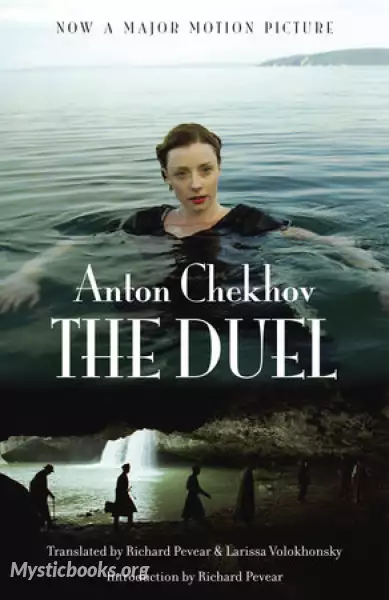
The Duel
'The Duel ' Summary
Ivan Andreitch Laevsky is an educated Russian aristocrat who has run off to a Black Sea village with a married woman, Nadezhda Fyodorovna. When the novella begins, he has fallen out of love with Nadezhda Fyodorovna, who is having affairs with other men, and wants to leave her. He receives a letter informing him that her husband has died; however, he hides the letter in a book and does not tell her about it. That, he says, would be like inviting her to marry him.
Laevsky confides in Alexander Daviditch Samoylenko, a military doctor who has befriended Laevsky and looks after him. Samoylenko urges Laevsky to marry Nadezhda Fyodorovna, even if he does not love her. Laevsky says he cannot marry a woman he has no feelings for, but he cannot leave her because she has no relatives and relies on him for survival. Samoylenko tells him to give her enough money to live on. Laevsky, however, says he is 2000 rubles in debt and cannot afford to do that.
Samoylenko has two boarders in his house, and they discuss philosophy, science, and literature around the dinner table and elsewhere. One of them is Nikolay Vassilitch Von Koren, a zoologist; the other is a deacon in the Russian church. The doctor, the zoologist, and the deacon discuss the new idea of evolution. In a friendly discussion, the deacon says that man was descended from God, while Von Koren argues that man was descended from the ape. He explains how fitter animals survive to pass their strength on to their descendants, but weaker animals die off.
Von Koren uses Laevsky as an example of a man who is not fit to survive. When Laevsky came to town, he brought with him habits that the townsfolk view as uncouth. Von Koren says that Laevsky should not be permitted to reproduce; otherwise there would be children as uncouth as Laevsky all over Russia. Von Koren goes on to compare Laevsky to the cholera microbe and says he would like to kill Laevsky himself, as one would kill a pest. Samoylenko and the deacon reject these ideas, Samoylenko out of compassion and the deacon because he believes in the love taught by Christ. Samoylenko is offended by Von Koren insulting Laevsky and they reject his "German" ideas.
Laevsky decides to leave town for Petersburg. He says that he will go first and send for Nadezhda Fyodorovna after he is settled, but Samoylenko and Von Koren know that this is his way of abandoning her. Since he has no money, he asks Samoylenko to loan him 100 rubles. Samoylenko agrees but does not have the money. He tells Laevsky he will have to borrow it in turn from a third party, then, after Laevsky leaves, asks Von Koren for a loan. Von Koren agrees on the condition that Laevsky take Nadezhda Fyodorovna with him to Petersburg.
Book Details
Language
EnglishOriginal Language
RussianPublished In
1891Genre/Category
Tags/Keywords
Authors
Anton Chekhov
Russia
Anton Pavlovich Chekhov was a Russian playwright and short-story writer who is considered to be among the greatest writers of short fiction in history. His career as a playwright produced four classic...
Books by Anton ChekhovDownload eBooks
Listen/Download Audiobook
Related books

Town Before You by Hannah Cowley
"The Town Before You" is a satirical comedy set in 18th century England. The play centers on a group of impoverished lords and wealthy ladies who enga...
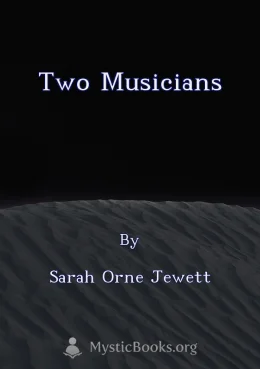
Two Musicians by Sarah Orne Jewett
Two Musicians is a short novel by Sarah Orne Jewett, known for its gentle and nuanced portrayal of life in a small New England town. It follows the fr...
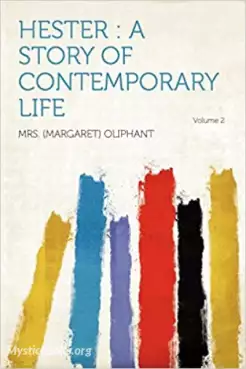
Hester: A Story of Contemporary Life, Volume 2 by Margaret O. Oliphant
Hester is an 1883 novel written by Margaret Oliphant. It examines the cycle of history through the lives of the Vernon family. The book was published...

The Thing in the Woods by Margery Williams
Dr. Haverill is asked to fill in as local physician for the skittish Dr. Lennox in a small Pennsylvania town. The locals seem to be a superstitious bu...

Maias: episodios da vida romantica by José Maria de Eça de Queirós
Os Maias é um romance de Eça de Queirós que retrata a decadência da aristocracia portuguesa através da história da família Maia. A obra acompanha Carl...

The Deluge Volume 2 by Henryk Sienkiewicz
The Deluge is a historical novel by the Polish author Henryk Sienkiewicz, published in 1886. It is the second volume of a three-volume series known to...
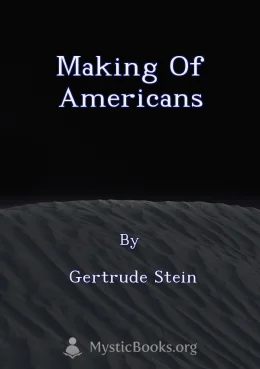
Making of Americans by Gertrude Stein
Gertrude Stein's *The Making of Americans* is a monumental work of experimental fiction that challenges traditional narrative structures and explores...
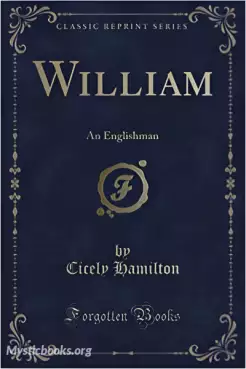
William, An Englishman by Cicely Hamilton
The novel explores the effect of the First World War on a married couple during the rise of Socialism and the Suffragette movement. It was originally...

Kopal-Kundala by Bankim Chandra Chatterjee
The novel is set in rural Bengal and explores themes of love, desire, and social class. It also touches on issues such as gender roles and the caste s...
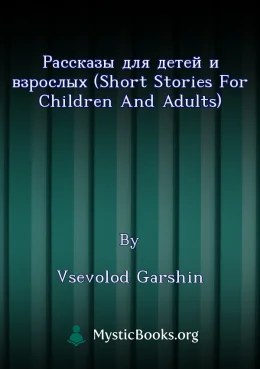
Pассказы для детей и взрослых (Short Stories for Children and Adults) by Vsevolod Garshin
This collection of short stories by Vsevolod Garshin, a prominent Russian writer of the 19th century, spans themes relevant to both children and adult...
Reviews for The Duel
No reviews posted or approved, yet...